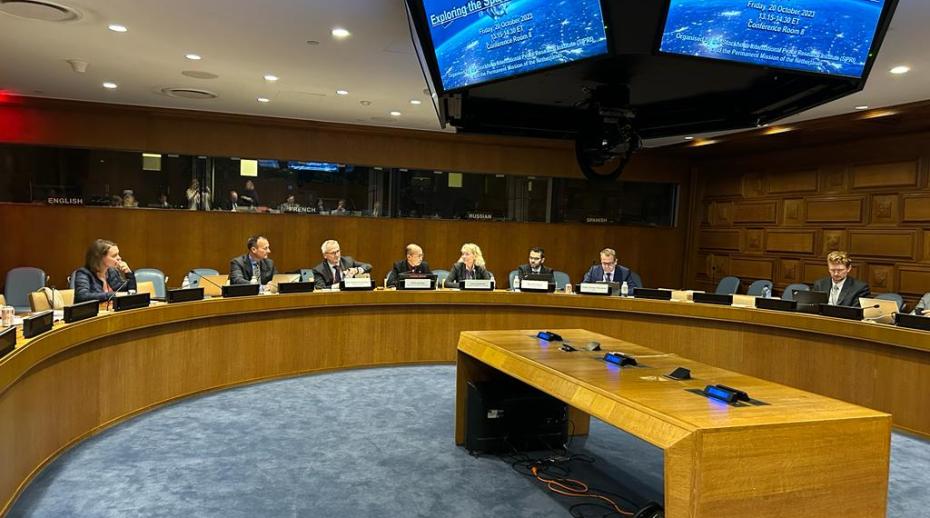
On 20 October, SIPRI, together with the Dutch Ministry of Foreign Affairs, organized a side event at the 78th session of the First Committee of the United Nations General Assembly in New York. The event explored the nexus between outer space and nuclear weapons, including how developments in outer space can impact potential pathways to nuclear use.
In recent years, civilian and military activities in outer space have both increased and there have been more active states and companies in the domain. Given the deteriorated strategic environment and the multidomain nature of contemporary warfare, warfighting on the ground, at sea and in the air could spill over to outer space—or be triggered by dynamics there. The SIPRI-led panel explored the role of outer space in nuclear weapons policies, relevant trends and developments in space and how stakeholders can help to de-silo conversations on these topics.
The event brought together researchers and experts from SIPRI and the UN Office for Disarmament Affairs, as well as representatives from Finland and the Netherlands. Ambassador Robert in den Bosch, Disarmament Ambassador and Permanent Representative of the Netherlands to the Conference on Disarmament in Geneva, opened the event with introductory remarks.
The discussion at the event will feed into SIPRI’s ongoing research on the subject, which expands on themes explored in the recent SIPRI Background Paper ‘The Role of Space Systems in Nuclear Deterrence’.
Click here to read the SIPRI Background Paper.
About SIPRI’s Weapons of Mass Destruction Programme
SIPRI’s Weapons of Mass Destruction (WMD) Programme seeks to contribute to the understanding of trends and developments pertaining to nuclear, chemical and biological weapons. It considers their implications for an increasingly complex security landscape and seeks to identify approaches to address the risks and challenges WMD pose. To this end, the programme examines the political, institutional, legal and technical aspects of WMD governance, focusing on international efforts at arms control and disarmament, materials security and non-proliferation, and risk reduction.
Click here to read more about SIPRI’s WMD Programme.